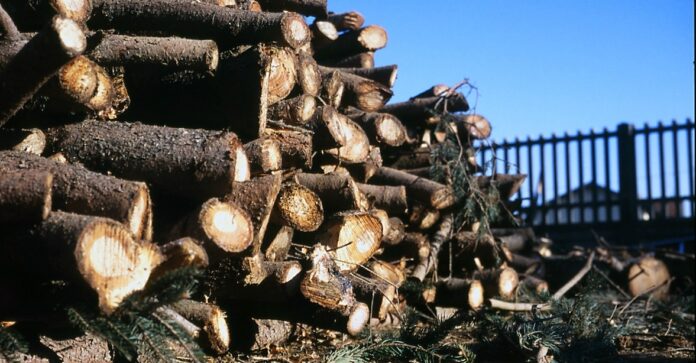The commitments made by the States in Glasgow contrast with various economic choices
INPE (Brazilian space research agency) has released data from surveys conducted in 2020 and part of 2021 regarding deforestation in the Amazon. Deforestation increased by about 22% in a year. It has never been a mystery that Premier Bolsonaro gave a free hand to friends of ranchers to raze trees and create pastures for cattle. This being said, it seems ironic that Bolsonaro himself, on behalf of his country, has given approval to the agreement signed in Glasgow, according to which by 2030 deforestation should be reversed and reforestation should begin. In the meantime, 13,235 square kilometers of rainforest have gone up in smoke, releasing large quantities of carbon. It should be added that the needs to expand agriculture and mining have also played their part. (Read also: https://www.fyinpaper.com/bolsonarite-dalla-foresta-pluviale-alle-bistecche/ )
Timber exports and palm oil still impoverish many habitats
However, there is more. Illegal logging in the Democratic Republic of Congo is virtually out of control. Timber is illegally exported to the U.S. and the European Union, which have formally banned its importation. Indonesia is also losing millions of hectares of forest to make room for palm trees from which oil is extracted. The instrument of forest destruction is mainly arson. However, as we have seen over the course of this year, drought and average rise in temperatures have fueled the flames from California to Siberia, worsening the situation across the planet. In Glasgow, more than 100 countries made a formal commitment (read also: https://ukcop26.org/glasgow-leaders-declaration-on-forests-and-land-use/ ) to stop deforestation by 2030 at a cost of 16.5 billion euros.
Protecting the planet does not yet appear to be a top priority
Caution in recording the good intentions of delegates is in order. Already in 2014, an international conference in New York had indicated the same goal. In fact, according to the FAO, there has been a reduction in deforestation compared to the last decade of the last century. In that period, the average annual destruction of forests was 8,000 hectares per year, while between 2010 and 2020 it was “only” 5,000 hectares. Everything will depend on the ability of governments to remove the anthropogenic and non-anthropogenic causes of this destruction.
The protection of forests is also closely linked to other issues, such as the maintenance of biodiversity, the care of eco-environments in which wildlife lives and prospers for thousands of years, without disturbing the planetary balance or spreading dangerous microorganisms. The pandemic of Coronavirus has urged in all States a greater attention to this problem.
Read also:
https://www.fyinpaper.com/dossier-glasgow-una-lotta-infinita-an-endless-struggle/
Chi fermerà la deforestazione del pianeta?
Gli impegni presi dagli Stati a Glasgow contrastano con varie scelte economiche
L’INPE (agenzia di ricerca spaziale brasiliana) ha comunicato i dati delle rilevazioni effettuate nel 2020 e parte del 2021 riguardo alla deforestazione dell’Amazzonia. In un anno la deforestazione è aumentata del 22% circa. Non è mai stato un mistero che il premier Bolsonaro avesse dato mano libera agli amici degli allevatori per radere al suolo gli alberi e creare pascoli per il bestiame. Ciò che appare paradossale è che Bolsonaro stesso, a nome del suo Paese, ha dato il placet all’accordo firmato a Glasgow, secondo cui entro il 2030 si dovrebbe invertire la deforestazione e dare inizio alla riforestazione. Nel frattempo 13.235 kmq di foresta pluviale sono andati in fumo liberando grandi quantità di carbonio. Bisogna aggiungere che anche le esigenze di espandere l’agricoltura e le attività minerarie hanno avuto la loro parte. (vedi anche: https://www.fyinpaper.com/bolsonarite-dalla-foresta-pluviale-alle-bistecche/)
Legname da esportazione e olio di palma depauperano ancora molti habitat
Ma c’è di più. Il disboscamento illegale nella Repubblica Democratica del Congo è praticamente fuori controllo. Il legname viene esportato clandestinamente negli Usa e nell’Unione Europea, che formalmente ne hanno vietato l’importazione. Anche l’Indonesia perde milioni di ettari di foresta, distrutti per fare posto alle palme da cui si estrae l’olio. Lo strumento di distruzione delle foreste è soprattutto l’incendio appiccato dolosamente. Ma, come si è visto nel corso di quest’anno, la siccità e l’innalzamento medio della temperatura hanno alimentato le fiamme dalla California alla Siberia, peggiorando la situazione su tutto il pianeta. A Glasgow più di 100 Paesi si sono impegnati con un atto formale, (vedi anche: https://ukcop26.org/glasgow-leaders-declaration-on-forests-and-land-use/ ) a fermare la deforestazione entro il 2030, con un costo di 16,5 miliardi di euro.
La tutela del pianeta di fatto non appare ancora una priorità assoluta
La cautela nel registrare le buone intenzioni dei delegati è d’obbligo. Già nel 2014 una Conferenza internazionale a New York aveva indicato lo stesso obiettivo. E in effetti, secondo la FAO, una riduzione della deforestazione c’è stata rispetto all’ultimo decennio del secolo scorso. In quel periodo la media annua di distruzione delle foreste fu di 8.000 ettari l’anno, mentre fra il 2010 e il 2020 ha colpito “solo” 5.000 di ettari. Tutto dipenderà dalla capacità dei governi di rimuovere le cause antropiche e non antropiche di tale distruzione.
Alla tutela delle foreste, inoltre, si collegano strettamente altre questioni, come il mantenimento della biodiversità, la cura degli eco-ambienti in cui la fauna vive e si mantiene da migliaia di anni, senza turbare gli equilibri planetari o diffondere pericolosi microrganismi. La pandemia di Coronavirus ha sollecitato in tutti gli Stati una maggiore attenzione a questo problema.
Leggi anche:
https://www.fyinpaper.com/dossier-glasgow-una-lotta-infinita-an-endless-struggle/








